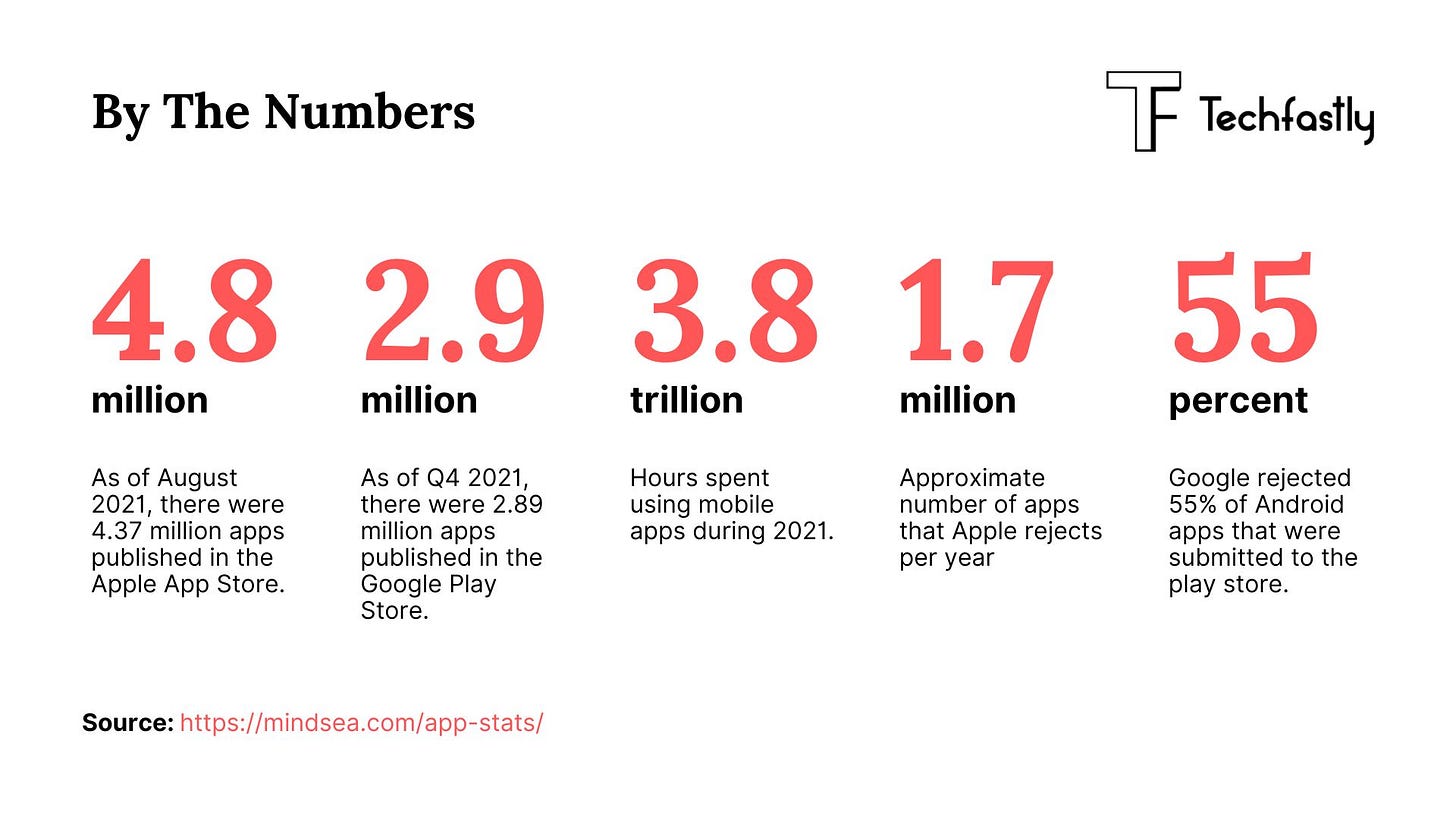App Store Monopolies: Are Google and Apple Stifling Competition?
Exploring the the fine line between control and competition in the mobile app space
The Google Play Store and Apple's App Store are the largest platforms for distributing mobile apps. While they offer convenience and accessibility to users, they also exert significant control over the mobile app industry and can stifle competition.
Both companies maintain a tight grip over the apps that are allowed on their platforms, including rules around content, design, and functionality. This can result in smaller and newer developers struggling to compete with established players, who may have already established relationships with the platform owners. The outcome of this control is that it can stifle competition and limit innovation in the mobile app industry.
An example of this is the popular game Fortnite, created by Epic Games. The company sued Apple and Google after the game was removed from their app stores for violating in-app payment guidelines. Epic argued that the removal of Fortnite was anti-competitive and monopoly behavior. This lawsuit highlights the difficulties that companies can face when navigating the app store policies and the challenges of competing in a market dominated by the tech giants.
Another example is Spotify, the music streaming service, which filed an antitrust complaint against Apple with the European Commission in 2019. Spotify alleged that Apple's app store policies stifle competition and give an unfair advantage to Apple's own music streaming service. This complaint highlights the issues faced by companies trying to compete in an ecosystem dominated by a single player.
Additionally, both companies also take a significant cut of revenue generated through their platforms, which can be a significant burden for developers, particularly those with limited resources. This can also discourage new competitors from entering the market and further solidify the dominance of existing players. The email app Blue Mail and project management tool Basecamp are other examples of companies that have taken legal action against the tech giants over allegations of anti-competitive behavior and violations of antitrust laws.
The opaque nature of the app store algorithms and ranking systems can make it difficult for new apps to gain visibility and compete with established apps. This can result in a lack of diversity in the types of apps available, as well as reduced innovation in the industry.
To address these concerns, both Google and Apple have taken steps to allow more competition in their app stores. Google has made changes to its app store policies to address concerns over anti-competitive behavior and to increase transparency. For example, Google has revised its policy on in-app purchases to allow developers to use their own payment systems, rather than being required to use Google's payment system, which charges a transaction fee. The company has also committed to providing more information to developers about how the Google Play Store's ranking algorithms work, to help them understand how to improve their app's visibility.
Apple has also taken steps to address concerns about its app store policies and increase competition. For example, the company has revised its in-app purchase policies to allow developers to use their own payment systems. Apple has also created an App Review Board to hear appeals from developers who have had their apps rejected from the App Store. The company has also introduced a small business program to help smaller developers get a fair share of the revenue generated through the App Store.
These measures show that both companies are taking steps to address concerns about competition in their app stores, although the effectiveness of these measures and the extent to which they address the underlying issues remains to be seen.
Overall, the issue of competition in the app store industry is complex and ongoing, and requires a balance between providing a secure and controlled environment for users and enabling a level playing field for all app developers.



